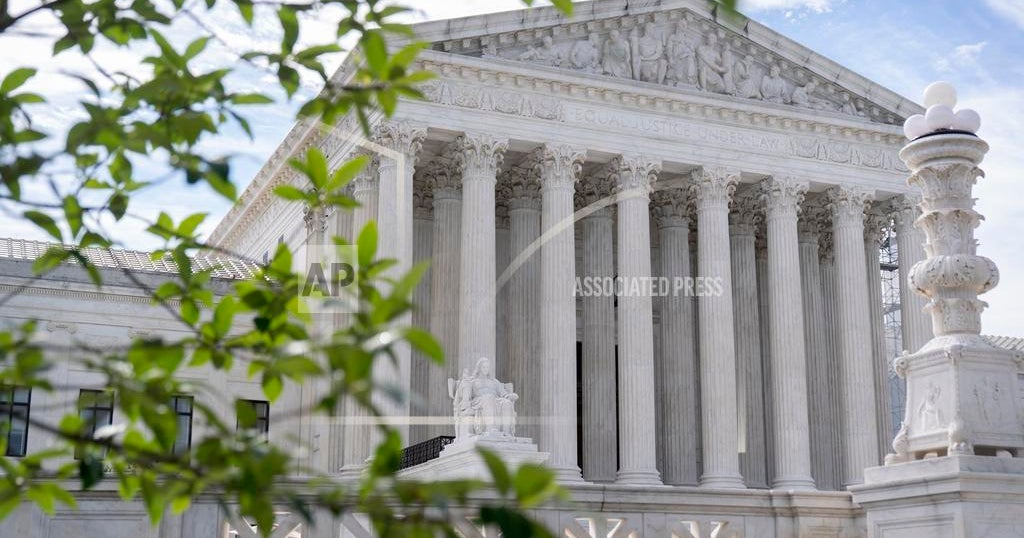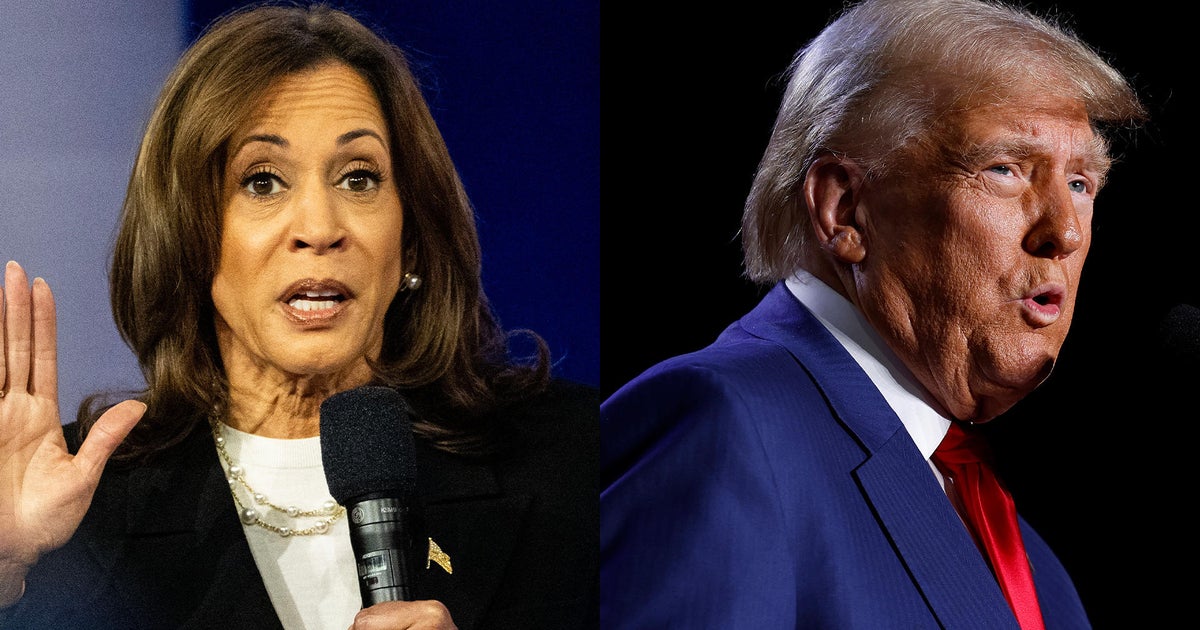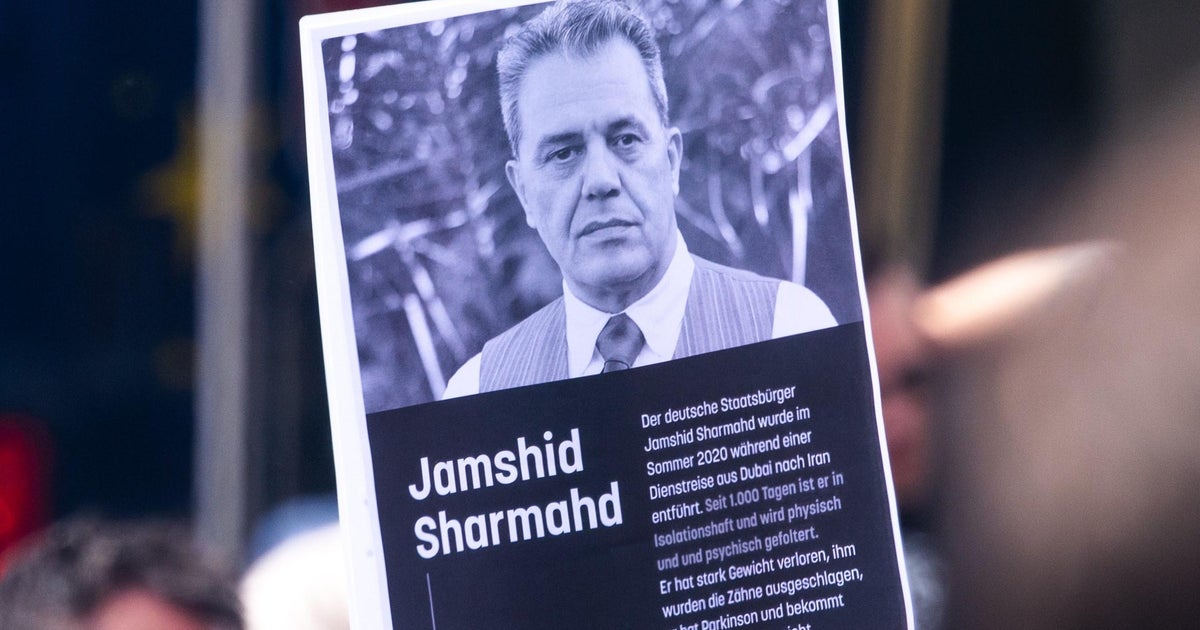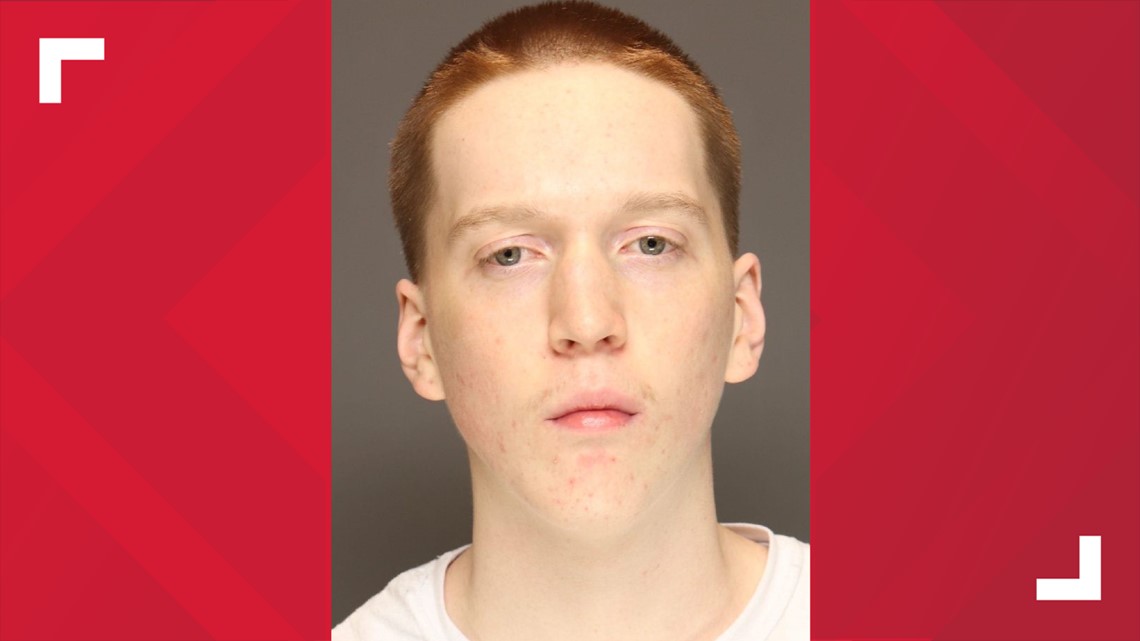CBS News
Virginia seeks Supreme Court’s intervention in challenge to voter roll purge

Washington — Virginia officials on Monday asked the Supreme Court to allow the state to move forward with its removal of roughly 1,600 alleged noncitizens from its voter rolls, seeking its intervention just days before the November general election.
State election officials requested the high court pause a lower court order that blocked Virginia from continuing its systematic voter removal program that was launched in August, exactly 90 days before Election Day. A provision of the National Voter Registration Act requires states to complete programs aimed at purging ineligible voters from registration lists up to 90 days before federal elections.
Virginia officials asked the Supreme Court to grant its request for emergency relief by Tuesday. They claimed that the district court’s order violates Virginia law “and common sense” and “mandates a variety of disruptive measures.”
The injunction issued by the lower court will harm “Virginia’s sovereignty, confuse her voters, overload her election machinery and administrators, and likely lead noncitizens to think they are permitted to vote, a criminal offense that will cancel the franchise of eligible voters,” state officials wrote.
Federal law prohibits noncitizens from voting in federal elections.
Virginia’s bid for the Supreme Court’s intervention arose from a Justice Department lawsuit filed against the state earlier this month that targeted an executive order from Gov. Glenn Youngkin, a Republican. The order formalized a systematic program to remove from statewide voter registration lists people who were unable to verify that they are citizens to the Department of Motor Vehicles. State officials say the program was in place, and the order merely changed the frequency of the data reporting from monthly to daily.
The Justice Department argued that the implementation of the program violates the so-called Quiet Period Provision, a section of the National Voter Registration Act that bars states from implementing programs that seek to remove ineligible voters from their rolls by no later than 90 days before an election. Youngkin announced his state’s systematic program on Aug. 7, exactly 90 days before the Nov. 5 general election.
U.S. District Judge Patricia Giles granted the Justice Department’s request for a preliminary injunction Friday, ordering the state to restore the registrations of roughly 1,600 people who were purged from state rolls under Youngkin’s program. Giles found the state likely violated federal law when it systematically canceled those voters’ registrations during the so-called quiet period.
A panel of three judges on the U.S. Court of Appeals for the 4th Circuit upheld the district court’s order Sunday, saying in a brief order that it is “unpersuaded” by the argument from Virginia officials that the state’s program doesn’t violate the federal voter registration law.
The three-judge panel found state officials were wrong to assert that they were ordered to restore roughly 1,600 noncitizens to voter rolls, as they did not know that those removed under Youngkin’s program were actually noncitizens. It reiterated that some of the people whose voter registrations were canceled are eligible to cast ballots.
In their request to the Supreme Court, Virginia officials argued the Quiet Period Provision doesn’t apply to the removal of noncitizens from the state’s voter rolls, since they’re not eligible to vote at all. Still, they said that those who were identified as noncitizens and registered voters are informed that their registrations will be canceled and given 14 days to verify that they are citizens.
State officials argued in their filing that the Justice Department and voting rights groups asked the district court to “inject itself into the Commonwealth’s reasonable and longstanding election processes within a month of the election, and weeks after early voting had begun.”
They also refuted the characterization of its efforts to purge alleged noncitizens from its rolls, noting that Youngkin’s order did not create that process, but rather increased the frequency of data-sharing among agencies from monthly to daily.
The Justice Department and voting groups have until Tuesday afternoon to respond to the state’s request for relief.
CBS News
Republicans turn to Supreme Court in dispute over Pennsylvania provisional ballots

Washington — The Republican National Committee asked the Supreme Court on Monday to put on hold a state high court decision that said election officials must count provisional ballots cast by a voter whose mail ballot was rejected because it was returned without a secrecy envelope.
The request for emergency relief sought by Republicans is the second involving the 2024 election to be filed with the Supreme Court on Monday. Earlier in the day, Virginia officials asked the high court to allow it to move forward with removing roughly 1,600 alleged noncitizens from state voter rolls.
Both requests for the Supreme Court’s intervention come just over a week before Election Day and as millions of voters across the country have already cast their ballots early, either in person or by mail. In Pennsylvania, more than 2 million mail ballots have been requested, and roughly 1.4 million returned, according to the University of Florida Election Lab.
Pennsylvania is a crucial state that could decide whether Vice President Kamala Harris or former President Donald Trump wins the White House. Republicans warned that if the Pennsylvania Supreme Court’s ruling is left untouched, “tens of thousands” of provisional votes may be counted. In the 2020 election, when many states made it easier to vote by mail because of the COVID-19 pandemic, roughly 1% of returned mail ballots in Pennsylvania were rejected because they did not have secrecy envelopes, according to an analysis from the MIT Election Data and Science Lab.
Republicans said that if the justices determine that a full stay is not warranted, they should order provisional ballots cast by voters whose mail ballots were defective to be set aside and if counted, they should be tallied separately and not included in the official vote count while the legal battle plays out.
“This case is of paramount public importance, potentially affecting tens of thousands of votes in a state which many anticipate could be decisive in control of the U.S. Senate or even the 2024 presidential election,” lawyers for the Republicans wrote. “Whether that crucial election will be conducted under the rules set by the General Assembly or under the whims of the Pennsylvania Supreme Court is an important constitutional question meriting this court’s immediate attention.”
The Pennsylvania case arose after the state’s primary election in April, when two voters from Butler County submitted mail ballots but failed to enclose them in secrecy envelopes. The state also requires voters to sign and date the mailing envelopes containing their ballots. Failure to comply with these requirements renders the mail ballot invalid.
Because the voters returned their ballots without secrecy envelopes, they were notified by the Butler County Election Board that their votes might not be counted and were advised that they could cast provisional ballots during in-person voting, and both voters did so.
But the county board of elections did not count those provisional ballots. After learning they were rejected, the voters sued in state court, arguing that the board was wrong to reject their ballots. The trial court disagreed, finding that the state’s election code prohibits individuals who submit mail ballots that are “timely received” from having their provisional ballots tallied. A voter’s error in returning a mail ballot was not found to be an acceptable reason to count a provisional ballot.
But the voters prevailed before the Pennsylvania Supreme Court, which ruled in a 4-3 decision that boards of elections must count provisional ballots cast by voters whose mail ballots are rejected for lacking secrecy envelopes.
While the dispute involves voters from Butler County, the Pennsylvania Department of State issued guidance last week stating that a provisional ballot may be issued when voters return a completed mail ballot that would be rejected and the voters believe they’re eligible to vote.
Republicans urged the Supreme Court to pause the decision from Pennsylvania’s top court, warning that if it remains in place, county boards “will be forced to ignore the Election Code’s clear mandate and count provisional ballots cast on Election Day by those who submitted defective mail ballots.”
They also argued that the state supreme court was wrong to change the rules regarding mail voting after it had started and so close to Election Day.
CBS News
Latest news on China’s efforts to hack Trump, Vance and Harris campaign

Watch CBS News
Be the first to know
Get browser notifications for breaking news, live events, and exclusive reporting.
CBS News
Jamshid Sharmahd, Iranian-German prisoner who lived in California, executed in Iran over disputed terror charges

Iranian-German prisoner Jamshid Sharmahd, who was kidnapped in Dubai in 2020 by Iranian security forces, has been executed in Iran after being convicted on terror charges disputed by his family, the country’s judiciary reported Monday.
Sharmahd, 69, was one of several Iranian dissidents abroad in recent years either tricked or kidnapped back to Iran as Tehran began lashing out after the collapse of its 2015 nuclear deal with world powers.
Sharmahd’s execution comes just two days after Israel launched a retaliatory strike against Iran amid the ongoing Mideast wars. While not directly linking his execution to the attack, the judiciary accused him of being “under orders from masters in Western intelligence agencies, the United States and the child-killing Zionist regime” when allegedly carrying out attacks in Iran.
The judiciary’s Mizan news agency reported his execution took place Monday morning, without offering details. Iran, one of the world’s top executioners, typically hangs condemned prisoners at sunrise.
Iran accused Sharmahd, who lived in Glendora, California, for two decades, of planning a 2008 attack on a mosque that killed 14 people and wounded over 200 others, as well as plotting other assaults through the Kingdom Assembly of Iran opposition group and its Tondar militant wing.
Photo by Ying Tang/NurPhoto via Getty Images
Iran also accused Sharmahd of “disclosing classified information” on missile sites of Iran’s paramilitary Revolutionary Guard during a television program in 2017.
“Without a doubt, the divine promise regarding the supporters of terrorism will be fulfilled, and this is a definite promise,” the judiciary said in announcing his execution.
Sharmahd’s family disputed the allegations and had worked for years to see him freed. They could not be immediately reached for comment.
Germany expelled two Iranian diplomats in 2023 over Sharmahd’s death sentence. The U.S. State Department has referred to Iran’s treatment of Sharmahd as “reprehensible” and described him facing a “sham trial.”
The German government and the U.S. State Department did not immediately respond to a request for comment Monday.
Amnesty International said the proceedings against Sharmahd had been a “grossly unfair trial” because he had been denied access to an independent lawyer and “the right to defend himself.”
“The government-appointed lawyer said that without payment of $250,000 from the family, he would not defend Jamshid Sharmahd in court and would only ‘sit there,'” Amnesty said in one report on his case.
However, Amnesty noted that Sharmahd ran a website for the Kingdom Assembly of Iran and its Tondar militant wing that included claims of “responsibility for explosions inside Iran,” though he repeatedly denied being involved in the attacks.
Sharmahd had been in Dubai in 2020 while on his way to India for a business deal involving his software company. He was hoping to get a connecting flight despite the ongoing coronavirus pandemic disrupting global travel at the time.
Sharmahd’s family received the last message from him on July 28, 2020. It’s unclear how the abduction happened. But tracking data showed Sharmahd’s mobile phone traveled south from Dubai to the city of Al Ain on July 29, crossing the border into Oman. On July 30, tracking data showed the mobile phone traveled to the Omani port city of Sohar, where the signal stopped.
Two days later, Iran announced it had captured Sharmahd in a “complex operation.” The Intelligence Ministry published a photograph of him blindfolded.
His daughter, Gazelle Sharmahd, saw her father appear on Iranian TV in a courtroom, looking petrified.
“He’s forced to confessions about crimes he did not commit,” Gazelle Sharmahd told “60 Minutes” recently. “The charge that they gave him is corruption on Earth. That’s why he got the death sentence.”
Koosha Mahshid Falahi / AP
Iran carries out the highest number of executions annually after China, according to rights groups, including Amnesty International. The number of executions in 2023 was the highest recorded since 2015 and marked a 48% increase from 2022, and a 172% increase from 2021, Amnesty said.
According to Human Rights Watch, Iran executed at least 87 people in August, including 29 in one day.










